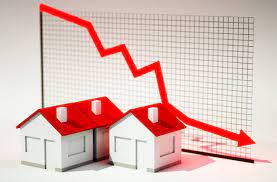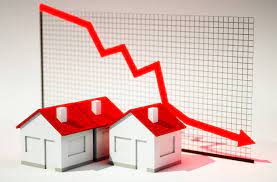
According to new research, demand for residential properties in the United Kingdom has nearly halved since September's government budget, which spooked financial markets and toppled the prime minister.
The fiscal package, announced on September 23, triggered a bond sell-off and raised fears of a housing market crash as interest rate expectations rose sharply. Following the budget, a record number of mortgage transactions were withdrawn, and many lenders paused offerings as they assessed the volatility.
According to property website Zoopla, buyer demand fell 44% year on year in the four weeks ending Nov. 20, while new property sales fell 28%. Over the same time period, the inventory of available homes increased by 40%.
According to Zoopla, demand had dropped to levels typically seen around Christmas — one of the quietest times for property markets — as buyers waited to assess the outlook for mortgages, as well as their own jobs and wages.
Zoopla's executive director of research, Richard Donnell, predicted a 5% drop in house prices in 2023.
"However, the number of sales will remain buoyant due to a variety of structural, demographic, and economic factors," he said, citing ongoing housing scarcity, with the average number of homes on offer per estate agency still a fifth lower than before the pandemic.
Although a drop in house prices is widely predicted, the company's forecast is less pessimistic than others.
Pantheon Macroeconomics economists predict an 8% drop over the next year, while Nationwide, one of the UK's largest mortgage lenders, said earlier this month that house prices could fall by up to 30% in the worst-case scenario.
In contrast, the UK's Office for Budget Responsibility predicts that house prices will fall 1.2% next year and 5.7% in 2024.
It comes after the pandemic's desire for different types of property, the suspension of a purchase tax on homes under $500,000 from July 2020 to July 2021, and ongoing supply shortages caused house prices to skyrocket to record highs.
According to Zoopla, there is currently a "widespread" repricing of homes, but it is small in scale. It puts year-on-year house price growth in the United Kingdom at 7.8%.
According to the report, market trends are a "shake-out rather than a precursor to a housing crash," and the mini-budget "delivered a shock" to sellers and buyers.
“All the leading supply and demand indicators we measure continue to point to a rapid slowdown from very strong market conditions. We do not see any evidence of forced sales or the need for a large, double digit reset in U.K. house prices in 2023,” its report said.
Meanwhile, private rental costs in the United Kingdom have reached new highs due to intense competition for properties, according to separate data published last month by the website Rightmove.
It discovered that rents in London were up 16.1% year on year, the highest increase of any region on record.
(Source:www.reuters.com)
The fiscal package, announced on September 23, triggered a bond sell-off and raised fears of a housing market crash as interest rate expectations rose sharply. Following the budget, a record number of mortgage transactions were withdrawn, and many lenders paused offerings as they assessed the volatility.
According to property website Zoopla, buyer demand fell 44% year on year in the four weeks ending Nov. 20, while new property sales fell 28%. Over the same time period, the inventory of available homes increased by 40%.
According to Zoopla, demand had dropped to levels typically seen around Christmas — one of the quietest times for property markets — as buyers waited to assess the outlook for mortgages, as well as their own jobs and wages.
Zoopla's executive director of research, Richard Donnell, predicted a 5% drop in house prices in 2023.
"However, the number of sales will remain buoyant due to a variety of structural, demographic, and economic factors," he said, citing ongoing housing scarcity, with the average number of homes on offer per estate agency still a fifth lower than before the pandemic.
Although a drop in house prices is widely predicted, the company's forecast is less pessimistic than others.
Pantheon Macroeconomics economists predict an 8% drop over the next year, while Nationwide, one of the UK's largest mortgage lenders, said earlier this month that house prices could fall by up to 30% in the worst-case scenario.
In contrast, the UK's Office for Budget Responsibility predicts that house prices will fall 1.2% next year and 5.7% in 2024.
It comes after the pandemic's desire for different types of property, the suspension of a purchase tax on homes under $500,000 from July 2020 to July 2021, and ongoing supply shortages caused house prices to skyrocket to record highs.
According to Zoopla, there is currently a "widespread" repricing of homes, but it is small in scale. It puts year-on-year house price growth in the United Kingdom at 7.8%.
According to the report, market trends are a "shake-out rather than a precursor to a housing crash," and the mini-budget "delivered a shock" to sellers and buyers.
“All the leading supply and demand indicators we measure continue to point to a rapid slowdown from very strong market conditions. We do not see any evidence of forced sales or the need for a large, double digit reset in U.K. house prices in 2023,” its report said.
Meanwhile, private rental costs in the United Kingdom have reached new highs due to intense competition for properties, according to separate data published last month by the website Rightmove.
It discovered that rents in London were up 16.1% year on year, the highest increase of any region on record.
(Source:www.reuters.com)





